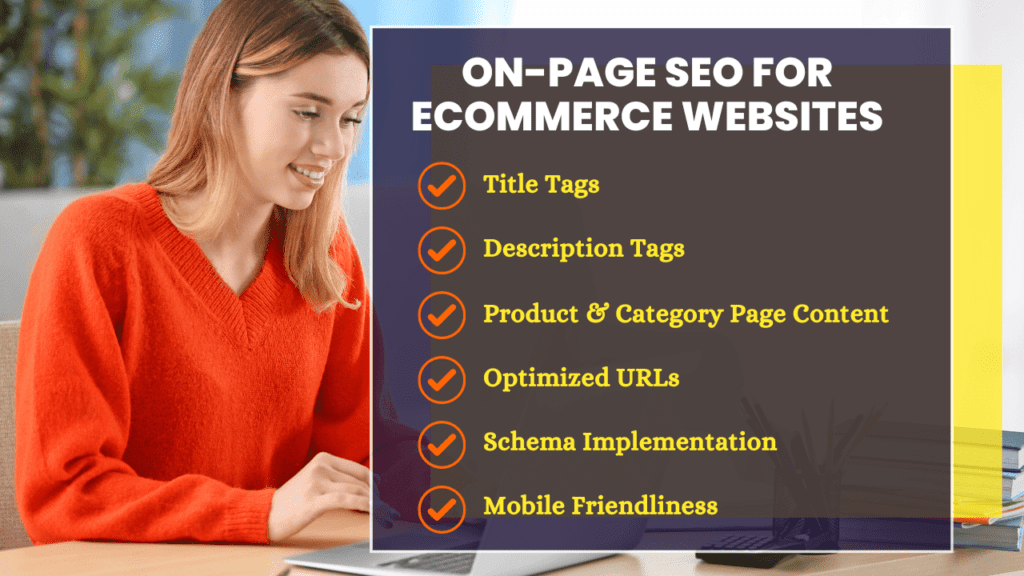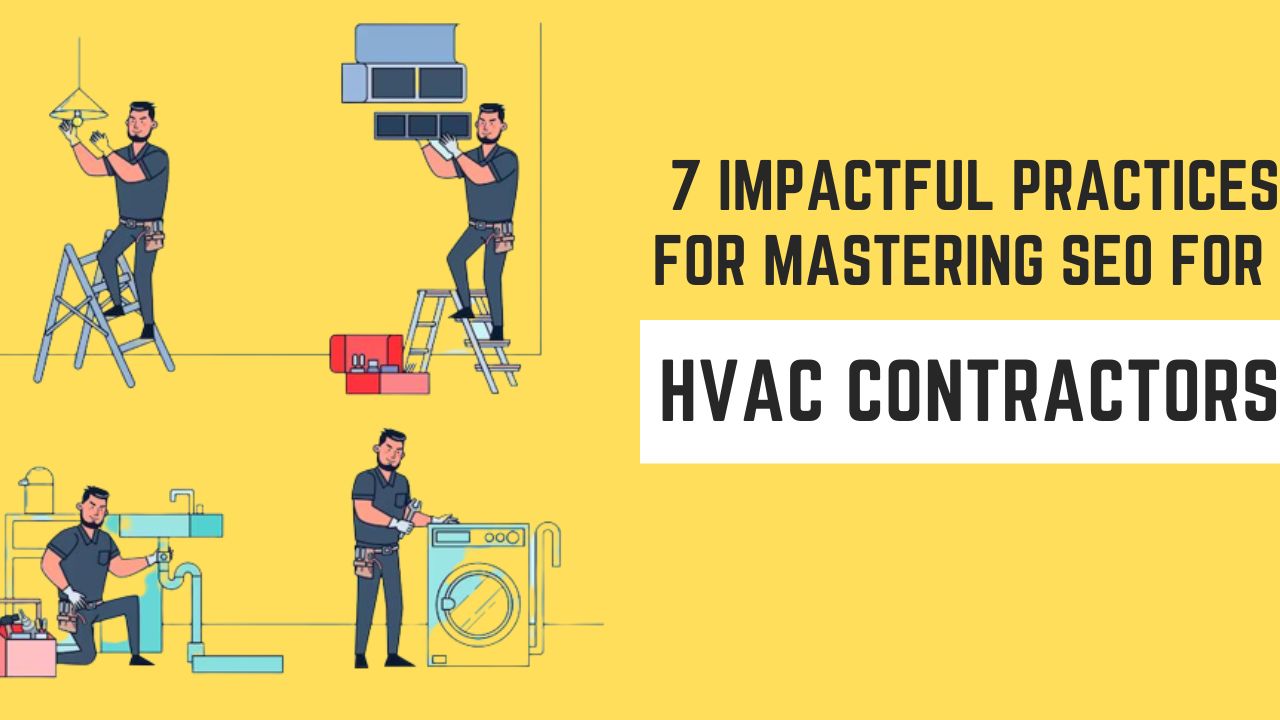Ranking higher than the competitors on the search engine has become a desire for every businessman.
From the business point of view, you should know about eCommerce SEO agency and how it is helpful in getting your eCommerce site at the top of search engine result pages.
Let’s have a look at some interesting stats:
- 45% of people start their online shopping journey through Google Search.
- According to the SEMRush report, 40% of traffic to all online stores comes through the search engine (Google).
- According to Business Insider, 25% of eCommerce orders come from Google search(organically).
Here we’re going to share our comprehensive guide on eCommerce store SEO that will help you to maximize organic traffic for your store in 2023. In this guide, We’ll explore the strategies and techniques to maximize organic traffic to your online eCommerce store. In the ever-transforming world of eCommerce, search engine optimization plays a pivotal role in driving visibility, attracting potential customers, and boosting sales.
With the constant changes in search engine algorithms and the increasing competition, it’s crucial to stay updated and adapt your SEO approach accordingly. In this guide, we’ll delve into the latest trends, best practices, and actionable tips to optimize your e-commerce website, enhance its search engine rankings, and ultimately increase organic traffic. Get ready to unlock the potential of SEO and take your online business to new heights in 2023.
Keyword Research for eCommerce Store Websites
Keyword research is the most important part of an Ecommerce SEO strategy.
With the help of effective eCommerce keyword research tools, you can do the research and find out the list of keywords that are productive for your niche like Ahrefs, SEMRush, Google Adword Keyword Planner, Ubersuggest, keywords everywhere, etc.
Consider the following points while doing keyword research for eCommerce store websites:

1. Search monthly search volume
A Search volume defines how frequently a keyword is searched on a search engine. The high search volume of a keyword means that the particular keyword is searched by a lot of users.
The competition will be also high for that keyword if you want to rank for it.
While choosing the keywords, focus on product-based keywords and also choose keywords by comparing their search volume with the level of difficulty.
It is important that you make the decision of choosing the keywords wisely!
2. Relevancy
Relevancy is a major factor in ranking at the top position on the search engine.
Suppose you find out a keyword that has a high search volume, but if it is not relevant to your product/service then it is not a good option to opt for.
Pro Tip: Choose those keywords that are highly relevant to your business.
3. Spy on the competition
Competitor research plays a crucial role in refining the best keywords for your business. Firstly, check on which keywords your competitors are ranking for.
Now a question arises, why is this important?
It is important because you can determine how much work you have to do to come up with great ideas in order to rank your website.
On-Page SEO for eCommerce Websites
Through On-Page SEO, you can see a rise in the leads, traffic, and sales of your products. From the above-mentioned stats, it is clear that most people start their online shopping journey through organic search on Google.
If your website isn’t visible in the search results, then it becomes difficult for your audience to reach you. If you want them to reach you then it is important that your website appears on the SERP.
A perfectly optimized eCommerce website includes the following things:

1. Title Tags:
The length of the title tag should be 60 characters and should include the target keyword in it.
Suppose your keyword is “Nike shoes”. Instead of adding the exact keyword in the title tag, add some suffix or prefix along with the keyword. Like “Nike shoe price” or “Nike shoe sports”.

Make sure that the keyword that is generated after adding a suffix or prefix to the targeted keyword should be searched by the people.
Here is a list of a few general prefixes & suffixes that are mostly used by people while searching for products online:
- Cheap
- Deals
- Review
- Best
- Online
- Free shipping
In the title tags, try to make use of the magnet words that will help you to increase the CTR. For example; X% OFF, at the lowest price, etc.
2. Description Tags:
The length of the description tag should be 160 characters and should include the keywords in it.
It is an important part of On-Page SEO & helps to increase the CTR.
While writing description tags, include phrases like free shipping, items on sale, buy now, price of an item, great selection, etc in order to maximize your page CTR.
Here are a few examples of phrases that you can use in your description part.
- Save ____% off on ____.
- All of our ____ are on sale right now.
- Get FREE shipping on all ____ today.
- Click here to see all of our exclusive deals on _____.
- Great selection of ____ at the guaranteed lowest price.
3. Product & Category Page Content:
While writing content for product & category pages include 1000 words on your page and use your keywords 3 to 5x.
Along with the targeted keywords, also use LSI (Latent Semantic Indexing) keywords.
For example; You are optimizing your product page content with the keyword “Nike shoes”. In this case, LSI would be Nike shoes on sale, cheap Nike shoes online, Nike shoe prices, Nike running shoes, etc.
4. Optimizing URLs
According to a recent study, it is found that short URLs tend to rank at a higher position on SERP than long URLs.
As you are running an e-commerce store, it is important to know that your URLs will include categories and subcategories like https://abc.com/category/subcategory/product.html, and also make sure to add keywords in them.
5. Schema Implementation
If you want to stand out from your competitors then the implementation of a schema is the best option for you.
For eCommerce websites, building people’s trust is the biggest achievement. To do so, you can add reviews in your rich snippet and make it eye-catchy.

6. Mobile Friendliness
Nowadays, everyone is using mobile phones to search for their queries and to do online shopping.
It is important that your website should be mobile-friendly. If it is not then you will lose most of your customers.
Besides doing on-page SEO of your eCommerce website, you have to focus on technical SEO for your website. If you want to get more information regarding it, check a technical eCommerce SEO checklist for the website here.
Link Building for eCommerce Websites
Following are the effective link-building strategies for eCommerce websites:

1. Video Marketing
Video Marketing is gaining popularity day by day. For eCommerce owners, videos are a great option to promote their brand’s products. It is found that users get more engaged with the videos. It provides a better experience to your user about your product.
For e-commerce brands, there are three types of videos that will help to increase their CTR.
- How-to or Tutorial videos
- Customer testimonial videos
- Informative videos
So, if you are running an eCommerce store then you should use this link-building strategy in order to increase your CTR & sales.
2. Blogs
Blogs are one of the best ways to boost the ranking in SERP. Include a blog section on your website and add link-worthy content. This content can be informative, engaging, trending news, and interesting facts about your niche.
Your ability to engage your targeted audience is the most valuable asset of your business. A well-organized blog with engaging content is a magnet and your audience is the Iron. That’s how it works!
Blogs further help you in bringing more traffic to your website, increase brand presence, and generate leads & sales.
3. Events
This is one of the most effective ways of e-commerce marketing. Firstly find out the events related to your niche that are going to happen and reach out to their organizers & ask them if they would like to feature some of your products at the event.
This will help you to connect with your targeted audience and generate more conversions.
4. Broken link building
Find out the list of websites that have broken links from ahrefs.com. After finding the lists, reach out to the website owners and ask them if there are broken links on their website and mention that you have a good alternative to link to.
Conclusion:
In conclusion, to increase the presence of your brand online, boost sales, and drive organic traffic and conversions, optimizing your eCommerce website through effective SEO strategies is essential. When implemented correctly, SEO can yield instant growth in organic traffic and sales, making it a valuable investment for your business.
While SEO does require time and effort, the benefits it brings are substantial, and the best part is that you can achieve remarkable results without having to spend a single penny on advertising. By leveraging the power of eCommerce store SEO, you can enhance your website’s visibility, attract targeted customers, and establish a strong online presence that sets you apart from the competition. Embrace the potential of SEO and witness the transformative impact it can have on your online business.
The time it takes to see results from eCommerce store SEO can vary depending on various factors such as the competitiveness of your industry, the quality of your SEO efforts, and the overall condition of your website. In general, it may take several months to start seeing significant improvements in organic traffic and search rankings. SEO is a long-term strategy that requires regular efforts and patience.
Whether you should hire an eCommerce SEO agency or handle it yourself depends on your expertise, resources, and time availability. SEO can be complex and time-consuming, requiring technical knowledge and ongoing optimization efforts.
Hiring a professional agency can provide you with specialized expertise and save you time, allowing you to focus on other aspects of your business. However, if you have the necessary knowledge and resources, doing it yourself can be a cost-effective option.
Some common SEO mistakes to avoid for eCommerce websites include neglecting proper keyword research, having thin or duplicate content, neglecting on-page optimization elements like meta tags and headings, ignoring mobile optimization, neglecting site speed, not optimizing product images and descriptions, and lacking a comprehensive backlink strategy.
It’s important to stay updated with the latest SEO best practices and avoid these common pitfalls to maximize your organic traffic.
To optimize product descriptions and images for better search rankings, you should focus on incorporating relevant keywords naturally into the descriptions, ensuring they accurately reflect the product and its features. Use unique and compelling descriptions that provide value to potential customers.
Optimize product images by using descriptive file names and alt tags that include relevant keywords. Compress the images to reduce file size for faster page load times. Additionally, consider providing unique and user-generated content, such as reviews and testimonials, to enhance the SEO value of your product pages.
For mobile optimization in eCommerce, make sure your website has a responsive design that adapts to different screen sizes. Optimize your website’s loading speed for mobile devices by compressing images, minimizing code, and using caching techniques. Implement a mobile-friendly navigation structure that is easy to use on smaller screens.
Ensure that buttons and links are large enough to be easily clickable on mobile devices. Additionally, leverage structured data markup, such as schema.org, to provide search engines with additional information about your products and improve visibility in mobile search results.
To measure the success of your eCommerce store SEO strategy, you can use various metrics and tools. Monitor your organic traffic growth using tools like Google Analytics to track the number of visitors coming from search engines. Keep an eye on your keyword rankings to see if you’re improving in search engine results from pages. Track conversion rates and revenue generated from organic traffic to assess the impact on your business.
Additionally, monitor user engagement metrics such as bounce rate, time on site, and page views to gauge the effectiveness of your SEO efforts in attracting and retaining visitors.





